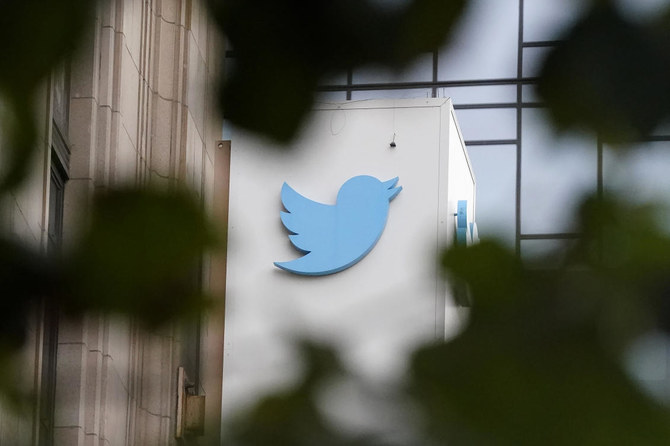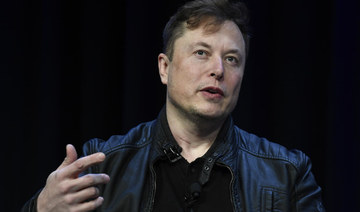Elon Musk reinstated the Twitter accounts of several journalists that were suspended for a day over a controversy on publishing public data about the billionaire’s plane.
The reinstatements came after the unprecedented suspensions evoked stinging criticism from government officials, advocacy groups and journalism organizations from several parts of the globe on Friday, with some saying the microblogging platform was jeopardizing press freedom.
A Twitter poll that Musk conducted later also showed that a majority of the respondents wanted the accounts restored immediately.
“The people have spoken. Accounts who doxxed my location will have their suspension lifted now,” Musk said in a tweet on Saturday.
Twitter did not immediately respond to a Reuters request for comment. A Reuters check showed the suspended accounts, which included journalists from the New York Times, CNN and the Washington Post, have been reinstated.
Officials from France, Germany, Britain and the European Union earlier condemned the suspensions.
The episode, which one well known security researcher labeled the “Thursday Night Massacre,” is being regarded by critics as fresh evidence of Musk, who considers himself a “free speech absolutist,” eliminating speech and users he personally dislikes.
Shares in Tesla, an electric car maker led by Musk, slumped 4.7 percent on Friday and posted their worst weekly loss since March 2020, with investors increasingly concerned about his being distracted and about the slowing global economy.
Roland Lescure, the French minister of industry, tweeted on Friday that, following Musk’s suspension of journalists, he would suspend his own activity on Twitter.
Melissa Fleming, head of communications for the United Nations, tweeted she was “deeply disturbed” by the suspensions and that “media freedom is not a toy.”
The German Foreign Office warned Twitter that the ministry had a problem with moves that jeopardized press freedom.
ELONJET
The suspensions stemmed from a disagreement over a Twitter account called ElonJet, which tracked Musk’s private plane using publicly available information.
On Wednesday, Twitter suspended the account and others that tracked private jets, despite Musk’s previous tweet saying he would not suspend ElonJet in the name of free speech.
Shortly after, Twitter changed its privacy policy to prohibit the sharing of “live location information.”
Then on Thursday evening, several journalists, including from the New York Times, CNN and the Washington Post, were suspended from Twitter with no notice.
In an email to Reuters overnight, Twitter’s head of trust and safety, Ella Irwin, said the team manually reviewed “any and all accounts” that violated the new privacy policy by posting direct links to the ElonJet account.
“I understand that the focus seems to be mainly on journalist accounts, but we applied the policy equally to journalists and non-journalist accounts today,” Irwin said in the email.
The Society for Advancing Business Editing and Writing said in a statement on Friday that Twitter’s actions “violate the spirit of the First Amendment and the principle that social media platforms will allow the unfiltered distribution of information that is already in the public square.”
Musk accused the journalists of posting his real-time location, which is “basically assassination coordinates” for his family.
The billionaire appeared briefly in a Twitter Spaces audio chat hosted by journalists, which quickly turned into a contentious discussion about whether the suspended reporters had actually exposed Musk’s real-time location in violation of the policy.
“If you dox, you get suspended. End of story,” Musk said repeatedly in response to questions. “Dox” is a term for publishing private information about someone, usually with malicious intent.
The Washington Post’s Drew Harwell, one of the journalists who had been suspended but was nonetheless able to join the audio chat, pushed back against the notion that he had exposed Musk or his family’s exact location by posting a link to ElonJet.
Soon after, BuzzFeed reporter Katie Notopoulos, who hosted the Spaces chat, tweeted that the audio session was cut off abruptly and the recording was not available.
In a tweet explaining what happened, Musk said “We’re fixing a Legacy bug. Should be working tomorrow.”
Elon Musk restores Twitter accounts of journalists after suspensions draw backlash
https://arab.news/8s89z
Elon Musk restores Twitter accounts of journalists after suspensions draw backlash

NGOs warn Elon Musk of ‘collective punishment’ if Starlink in Sudan is shut down

- People and organizations rely on ‘unofficial’ Starlink connection for lifeline services
- Coalition of 94 humanitarian, human rights groups call for warring factions to repair damaged communication infrastructure
LONDON: Starlink’s chief Elon Musk has been urged not to shut down the satellite internet service in Sudan, as doing so could “collectively punish” millions of Sudanese.
In an appeal to the American billionaire, nearly 100 humanitarian, civil society, human rights organizations and members of the #KeepItOn coalition have highlighted the critical role Starlink plays as a lifeline for on-the-ground organizations operating in the war-torn African country. They warn that interrupting the service could have fatal consequences.
“Any shutdown of telecommunication services is a violation of human rights and may be considered to be a collective punishment that will not only isolate individuals from their support networks but also exacerbate the already dire economic situation facing millions,” said the coalition, which includes Save the Children, Islamic Relief Worldwide and Action Against Hunger, among others.
The statement added: “The potential shutdown of Starlink would have a disproportionate impact on civilians and the aid organisations who are trying to reach them.”
Sudan has been grappling with a widespread telecommunications blackout for several months, severely limiting emergency and humanitarian services and access to basic transactions such as cash transfers from abroad.
Starlink, which can operate across borders thanks to its satellite service, announced earlier this month that it would cease its services in Sudan by restricting roaming in jurisdictions where it is not licensed.
If confirmed, this decision risks provoking a permanent nationwide telecommunications shutdown, similar to the one in February 2024 that left almost 30 million Sudanese without access to the internet or telephone calls for more than a month.
The situation is further exacerbated by the damage and destruction of communication infrastructure, targeted by both the Rapid Support Forces and the Sudanese military.
The coalition, which relies on expensive and scarce satellite internet in areas where formal telecommunications are not functioning, has also urged the warring factions to repair the infrastructure.
SpaceX’s Starlink has been under pressure to maintain its connection since conflict broke out in Sudan in April 2023.
In August, a hacking group called Anonymous Sudan took X offline in more than a dozen countries to pressure Elon Musk into formally opening Starlink in Sudan.
In recent months, the company has been at the center of a public debate over its role in connecting war-torn areas worldwide.
Earlier in May, Bloomberg reported that SpaceX was close to finalizing a deal with the Yemeni government to provide satellite internet to the country in what experts described as a “victory” over the Houthi rebels.
In September 2023, several media outlets reported that Elon Musk denied a Ukrainian request to extend Starlink’s coverage to Crimea during a surprise attack.
Although this was later clarified as an erroneous claim that Musk “turned off” Starlink coverage in Crimea, it raised concerns about the service’s role during conflicts.
Dentsu opens sports practice in MENA with Riyadh HQ

DUBAI: International advertising group Dentsu has announced the launch of its dedicated sports practice, dentsu Sports International, in the Middle East and North Africa region.
The new practice, which focuses on sports marketing and analytics services, will be headquartered in Riyadh, Saudi Arabia, with additional offices in the UAE.
To provide end-to-end service to clients, the group brings together three dentsu businesses: dentsu Sports International Commercial, MKTG Sports + Entertainment and dentsu Sports Analytics.
Charlie Wylie, managing director for Europe, Middle East and Africa at dentsu Sports International, said: “dentsu Sports International will serve as a strategic sports and entertainment arm of dentsu in MENA, offering comprehensive solutions tailored to the needs of brands and rights holders.”
The company has appointed Olaf Borutz as vice president of commercial development, reporting to dentsu Sports International’s global chief commercial officer, Echo Li.
Borutz’s previous role as head of sports and events at law firm Al Tamimi & Company saw him advise clients on sports and events-related commercial matters, including government bodies, rights holders, agencies and players of the Saudi Pro League and Qatar Stars League.
“The appetite for sports marketing in the Kingdom is at an all-time high, with Saudi’s ambitions and investment in this space only expected to grow,” said Tarek Daouk, CEO, dentsu MENA.
A significant 62 percent of Saudi sports fans say that sport plays a bigger role in their lives than before, according to a new study conducted by dentsu Sports International.
The study also found that fans spend more time and money than their international counterparts on live events in the Kingdom, with Saudi fans attending an average of six events in person a year, more than the UK average of two events per year.
Saudi Arabia’s significant youth population is passionate about sports, with 68 percent of 18–24-year-old Saudis saying they find attending sports events more rewarding than other entertainment events.
The study also revealed that these younger consumers are the most likely to purchase premium tickets, spending 31 percent more a ticket than older fans.
Daouk said: “It’s an exciting time for sports in the region and we are thrilled to launch dentsu’s bespoke sports and entertainment offering.”
Tunisia remands journalists arrested over critical comments

- Broadcaster Borhen Bssais and political commentator Mourad Zeghidi were arrested Saturday under a decree criminalizing ‘spreading false information’ among other charges, spokesman Mohamed Zitouna said
TUNIS: A Tunisian court on Wednesday ordered two journalists to be held in remand until the completion of investigations into critical comments, a court spokesman said.
Broadcaster Borhen Bssais and political commentator Mourad Zeghidi were arrested Saturday under a decree criminalizing “spreading false information” among other charges, spokesman Mohamed Zitouna said.
Zeghidi is being investigated over social media statements last February and a post in support of Mohamed Boughalleb, another journalist and critic of President Kais Saied who has been detained separately.
Bssais was arrested on accusations of “having harmed President Kais Saied through radio broadcasts and statements” online between 2019 and 2022, according to his lawyer Nizar Ayed.
Their trial is set to begin on May 22, according to their lawyers.
Both media figures are prosecuted under a law ratified by Saied in September 2022.
The law punishes people with up to five years in prison for the use of social media to “produce, spread (or) disseminate ... false news” and “slander others, tarnish their reputation, financially or morally harm them.”
Journalists and opposition figures have said it has been used to stifle dissent.
Since the decree came into force, more than 60 journalists, lawyers and opposition figures have been prosecuted under it, according to the National Union of Tunisian Journalists.
The same night Bssais and Zeghidi were taken into police custody, masked police raided the Tunisian bar association and arrested lawyer Sonia Dahmani, also on the same law.
On Monday, another lawyer was forcibly arrested at the association’s headquarters.
The president of the bar, Hatem Meziou, on Tuesday called for an end to “the abuse of power” and “violence” targeting the lawyers.
The European Union also expressed concern over a string of arrests of civil society figures in Tunisia — the latest sign of a tightening clampdown on freedoms under Saied.
Nongovernmental organizations have decried a rollback of freedoms in Tunisia since Saied began ruling by decree after a sweeping power grab in 2021.
‘Blockout’ trend targets celebrities over Gaza silence

- Selena Gomez, Zendaya and Kim Kardashian are among the celebrities who have lost hundreds of thousands of followers
- Boycott campaign gained traction following Met Gala event last week in New York
LONDON: A new trend threatening to boycott celebrities over their refusal to speak out about the Gaza conflict is gaining momentum on social media.
Known as “Blockout 2024,” the movement has surged in popularity following the Met Gala last week.
As part of a solidarity campaign, social media users are calling for the blocking of accounts of celebrities who have remained silent on the humanitarian crisis in Gaza.
High-profile figures such as Taylor Swift, Justin Bieber, and Drake are among the hundreds of celebrities facing this “digital guillotine.”
A full list is circulating on social media, leading to a significant loss of followers on Instagram and other platforms.
Actress and singer Selena Gomez reportedly lost 1 million followers on Instagram and 100,000 on X, according to US-based social media analytics site Sonic Blue.
Fellow actress and singer Zendaya, reality TV star Kim Kardashian, and her sister Kylie Jenner have also seen hundreds of thousands of followers drop.
Pro-Palestinian activists have been pressuring celebrities for months to show more support for Gaza civilians. This growing discontent reached a tipping point last week when the Met Gala’s glitz and glamour coincided with Israel’s announcement of a military offensive in Rafah.
@ladyfromtheoutside #greenscreen #greenscreenvideo #digitine #digitalguillotine #haleyybaylee ♬ original sound - Meagan
The movement was sparked by a TikTok video from influencer Haley Kalil at the Met Gala on May 7, where she lip-synced to the phrase “Let them eat cake.”
This phrase, attributed to Queen Marie Antoinette, drew parallels to the French Revolution, symbolizing indifference to the suffering of the impoverished.
“It’s time for the people to conduct what I want to call a ‘digital guillotine.’ A ‘digitine,’ if you will,” said TikTok creator @ladyfromtheoutside, who kicked off the movement with her viral video.
“It’s time to block all the celebrities, influencers and wealthy socialites who are not using their resources to help those in dire need. We gave them their platforms. It’s time to take it back, take our views away, our likes, our comments, our money.”
According to Gaza authorities, at least 35,000 people, mostly women and children, have been killed in the Palestinian territory during the seven-month war, which has been widely condemned as failing to comply with international humanitarian law.
BBC investigation leads to arrest of one of world’s most notorious people smugglers

- Barzan Majeed, nicknamed ‘Scorpion,’ is caught in Iraqi Kurdistan days after release of BBC podcast series by journalists who tracked him down and interviewed him
- Senior local official confirms officials used information from the broadcaster’s investigation to help find fugitive believed to have helped smuggle thousands of people to UK
DUBAI: Kurdish security forces arrested Barzan Majeed, described as one of the world’s most notorious people smugglers, in Iraqi Kurdistan on Sunday morning.
Nicknamed “Scorpion,” the fugitive is believed to have been involved in smuggling an estimated 10,000 people across the English Channel to the UK. He was arrested days after the release of a BBC podcast series in which investigative journalists tracked him down to the city of Sulaymaniyah in Iraq and interviewed him there.
During the interview, Majeed said he had lost count of the number of people he helped to smuggle, adding: “Maybe a thousand, maybe 10,000. I don’t know, I didn’t count.”
He admitted that between 2016 and 2019 he was one of two people who helped run a people-smuggling operation in Belgium and France but denied he was the mastermind of the operation.
“A couple of people, when they get arrested, they say, ‘We’re working for him’ — they want to get less (of a) sentence,” he said.
Originally from Iraq, Majeed moved to the city of Nottingham, in England, in 2013 but was deported two years later. He had been on the run since failing to appear at a court in Belgium for a sentencing hearing in November 2022.
The UK’s National Crime Agency issued a warrant for his arrest that same year. The agency, which confirmed his arrest, said: “We are grateful to the BBC for highlighting his case and remain determined to do all we can to disrupt and dismantle the criminal networks involved in smuggling people to the UK, wherever they operate.”
A senior member of the Kurdistan Regional Government confirmed its officials had used information from the BBC investigation to locate and arrest Majeed.
Each year, thousands of people flee Iraq, including its Kurdistan Region, in the hope of finding a better life in the UK or other parts of Europe. In many cases, they pay people smugglers to transport them, but the routes and methods used by the smugglers are often dangerous and the migrants face harsh weather and potentially deadly travel conditions.
Germany deported 222 Iraqi citizens in the first three months of this year as part of an alleged agreement between Berlin and Baghdad to deport migrants who do not qualify to remain in Germany, media organization Rudaw, which is based in Iraqi Kurdistan, reported this week.





















